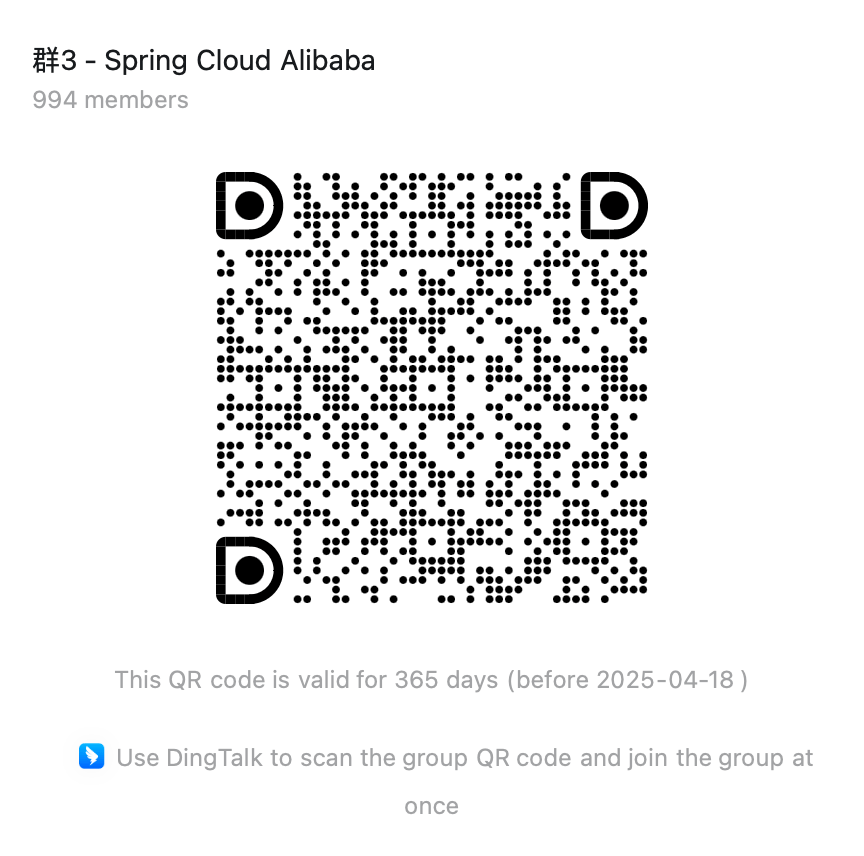Frequently Asked Questions
How to determine compatibility relationships between Spring AI Alibaba, Spring AI, and Spring Boot versions
Spring AI Alibaba uses a four-digit versioning system, with the first three digits corresponding to the Spring AI main version. The Spring AI Alibaba community continues to iterate on the fourth digit version number based on the first three main version digits.
Below are some version correspondences for reference, with new version releases following the same pattern:
| Spring AI Alibaba | Spring AI | Spring Boot |
|---|---|---|
| 1.0.0.2 | 1.0.0 | 3.4.5 |
| 1.0.0-M6.1 | 1.0.0-M6 | 3.4.2 |
What is the difference between Spring AI and Spring AI Alibaba?
Spring AI positions itself as a foundational framework for AI application development, providing basic atomic abstractions needed for AI development, including model adaptation, tool definitions, vector database access, etc. Spring AI Alibaba positions itself as an agent development framework, providing a Graph programming framework based on graph algorithms, making it easier for developers to build workflows and multi-agent applications. For a rough analogy, if Spring AI is like the Langchain framework in the LangChain ecosystem, then Spring AI Alibaba is like the Langraph framework in the LangChain ecosystem.
Besides the framework itself, Spring AI Alibaba is Alibaba Cloud’s enterprise-grade intelligent agent development best practice and comprehensive solution output based on the Spring AI framework, deeply integrated with Alibaba’s open source ecosystem and Alibaba Cloud platform services, including:
- Integration with Bailian Dashscope model service, supporting Qwen, Deepseek and other mainstream model series
- Integration with Bailian agent application platform AgentScope, providing low-code, high-code two-way conversion, improving development efficiency
- Integration with Bailian Xiyan ChatBI, providing open source framework and service for natural language to SQL automatic generation
- Integration with Alibaba Cloud products, including AnalyticDB vector retrieval database, OpenSearch vector retrieval database, Information Query Service IQS, etc.
- Integration with open source Nacos, Higress ecology, providing MCP registry, MCP intelligent routing, Prompt management, model proxy and other capabilities
- Providing intelligent agent product implementation and overall solutions for cutting-edge directions, including JManus, DeepResearch, NL2SQL, etc.
- Providing a complete supporting ecosystem for AI application development, including local development tools, project build platforms, etc.
Is there a comparison of mainstream Java AI frameworks?
Below is a comparison of current mainstream Java AI frameworks.
| Comparison Dimension | Spring AI Alibaba | Spring AI | LangChain4J |
|---|---|---|---|
| Spring Boot Integration | Native support | Native support | Community adaptation |
| Text Models | Mainstream models, extensible | Mainstream models, extensible | Mainstream models, extensible |
| Audio/Video, Multimodal, Vector Models | Supported | Supported | Supported |
| RAG | Modular RAG | Modular RAG | Modular RAG |
| Vector Databases | Mainstream vector databases Alibaba Cloud ADB, OpenSearch, etc. | Mainstream vector databases | Mainstream vector databases |
| MCP Support | Supported Nacos MCP Registry supported | Supported | Supported |
| Function Calling | Supported (20+ official tool integrations) | Supported | Supported |
| Prompt Templates | Hardcoded, no declarative annotations | Hardcoded, no declarative annotations | Declarative annotations |
| Prompt Management | Nacos configuration center | None | None |
| Chat Memory | Optimized JDBC, Redis, ElasticSearch | JDBC, Neo4j, Cassandra | Multiple implementation adaptations |
| Observability | Supported, can connect to Alibaba Cloud ARMS | Supported | Partially supported |


